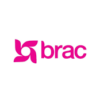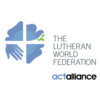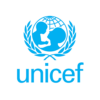This position is open to applications from Group 1, Group 2 and all external candidates, provided that requirements regarding professional experience, academic qualifications, language, etc. are fulfilled.
Candidates must be primarily Ugandan nationals. The minimum educational requirement for this position is a university degree.
Applications must be supported by documentation of fully effective performance history and demonstrated potential to assume professional responsibilities. Assistant GBV Officer
Organizational Setting and Work Relationships
The Assistant GBV Officer supports the operations¿ efforts to fulfil UNHCR¿s mandate and associated obligations on GBV prevention, risk mitigation and response based on policy and guidance.
The Assistant GBV Officer is part of the protection team normally reports to a higher-grade GBV or protection staff or the Head of Office.
S/he works directly with communities and persons of concern to identify the risks and ensure the implementation of a community and rights-based approach. The incumbent plans and undertakes quality, timely and effective Gender-based Violence (GBV) prevention and response in line with UNHCR¿s policy and guidance on GBV, in an age, gender and diversity inclusive manner as well as in line with survivor-centred approach. The incumbent works closely with programme and other team members to design Gender-Based Violence (GBV) prevention and response programs, GBV being a key protection concern. S/he provides technical advice to other technical units to support GBV mainstreaming throughout the operation. S/he is required to lead and strengthen the coordination with inter-agency partners, government authorities and persons of concern at the field. The incumbent contributes to the development of action plans and SOPs, capacity building and organizing GBV workshops for a range of audiences including partners, authorities and persons of concern. The incumbent will contribute to reviewing the current GBV prevention and response framework on the ground to identify critical gaps to be filled.
The incumbent may supervise some support staff.
S/he also ensures that persons of concern, in particular women and girls, are involved with the Office in making decisions that affect them, whether in accessing their rights or in identifying appropriate solutions to their problems. To achieve this, the incumbent will need to build and maintain effective interfaces with communities of concern, local authorities and protection and assistance partners.
All UNHCR staff members are accountable to perform their duties as reflected in their job description. They do so within their delegated authorities, in line with the regulatory framework of UNHCR which includes the UN Charter, UN Staff Regulations and Rules, UNHCR Policies and Administrative Instructions as well as relevant accountability frameworks. In addition, staff members are required to discharge their responsibilities in a manner consistent with the core, functional, cross-functional and managerial competencies and UNHCR¿s core values of professionalism, integrity and respect for diversity.
Duties
– Function as the GBV focal point for the area of responsibility and coordinate implementation of GBV programmes for the operation.
– Liaise with relevant local authorities and other UN agencies to shape and enhance the related working groups as well as technical meetings.
– Provide technical support and guidance to operational and implementing partners to ensure good quality implementation of projects in line with the operations GBV Strategy and global GBV minimum standards.
– Ensure monthly reporting, including GBVIMS and proGres v4 statistics with trends which informs policy, projects development.
– Stay abreast of political, social, economic and cultural developments that have an impact on the protection environment.
– Promote mainstreaming of Age, Gender and Diversity (AGD) across all sectors and activities such as health, safety and security, psychosocial and legal shelter, WASH, and Energy and coordinate with Programme and Protection sections to ensure that GBV risk mitigation is incorporated in activities of partners in all sectors.
– Provide technical guidance on integration of the survivor-centred approach into PSEA complaints mechanisms and enhance access of SEA survivors to existing GBV services.
– Support the integration of GBV risk mitigation into the role of UNHCR staff across all sectors
– Support the initial needs/gaps and capacity assessments on GBV in close coordination with any on-going joint/common assessments being conducted in the early stages of an emergency response while ensuring compliance with ethical standards for data collection related to GBV.
– Provide support to include GBV prevention and response programming in humanitarian action plans while providing guidance to other sectors for the inclusion of GBV risk mitigation into their plans.
– Contribute to the planning and monitoring for multi-sectoral GBV programming using the Results Framework and Focus in close collaboration with Programme and different sectors.
– Contribute to strengthening of GBV coordination mechanisms throughout the operation.
– Contribute to establishment and/or strengthening of new strategic and innovative partnerships for GBV both with community-based, women-led, local, national, and international organizations.
– Provide support in mapping existing services to address GBV in the various affected areas, including identifying community capacities and structures for potential partnership.
– Advocate with senior management in UNHCR and other partners, to ensure prioritization of GBV prevention and response as a life-saving response.
– Monitor GBV programs implemented by UNHCR and partners (both implementing and operational) and adjust programming as required.
– Monitor the implementation of Standard Operating Procedures (SOPs) and global standards within all GBV programs, including GBV case management.
– Contribute to the identification of durable solutions for persons of concern through voluntary repatriation, local integration and where appropriate, resettlement.
– Implement capacity-building activities for all actors, persons of concern, service providers including relevant Government institutions and NGOs to strengthen the prevention and response to GBV as well as risk mitigation thus contributing to enhance the overall protection situation.
– Perform other related duties as required.
Minimum Qualifications
Years of Experience / Degree Level
For P1/NOA – 1 year relevant experience with Undergraduate degree; or no experience with Graduate degree; or no experience with Doctorate degree
Field(s) of Education
International Development, Cultural Studies, Human Rights,
International Social Work, Social Science, Political Science,
Anthropology, Law, or other relevant field.
(Field(s) of Education marked with an asterisk* are essential)
Certificates and/or Licenses
Not specified.
(Certificates and Licenses marked with an asterisk* are essential)
Relevant Job Experience
Essential
Minimum 1 year of previous work experience relevant to the function of GBV in an international context, preferably in the field and having experience in the field of GBV prevention, risk mitigation and response, broader protection or social work involving empowerment of women and girls, gender, child protection, mental health, counselling and working with survivors, humanitarian and development issues. Applied experience in survivor-centred approach, GBV guiding and case management principles related to GBV programs. Demonstrated knowledge in gender equality and the empowerment of women and girls and apply, promote and integrate gender analysis into humanitarian programming. Demonstrated knowledge of and implementation of multi-sectorial responses to GBV and support to other sectors to mainstream GBV prevention, risk mitigation and response. Demonstrated knowledge and application of GBV prevention theory and appropriate GBV prevention and behaviour change strategies at different stages of the humanitarian response. Knowledge and demonstrated use of UNHCR and Interagency GBV tools and Guidance.
Desirable
Demonstrated understanding of critical issues around GBV data and knowledge of safe and ethical data collection and analysis and conducting assessments. Demonstrated knowledge of engagement with GBV Interagency humanitarian architecture. Knowledge and experience of participatory approaches to engaging with and mobilizing communities Good understanding of displacement and protection issues including, child protection, education and the application of the Age, Gender and Diversity Policy.
Functional Skills
IT-Computer Literacy
PR-Gender Based Violence (GBV) Coordination
PR-Gender Based Violence (GBV) Capacity development and training
PR-Age, Gender and Diversity (AGD)
TR-Training – Virtual and face to face
PR-Gender Based Violence (GBV) prevention programming
PR-Gender Based Violence (GBV) risk mitigation
PR-Gender Based Violence (GBV) response programming
(Functional Skills marked with an asterisk* are essential)
Language Requirements
For International Professional and Field Service jobs: Knowledge of English and UN working language of the duty station if not English.
For National Professional jobs: Knowledge of English and UN working language of the duty station if not English and local language.
For General Service jobs: Knowledge of English and/or UN working language of the duty station if not English.
All UNHCR workforce members must individually and collectively, contribute towards a working environment where each person feels safe, and empowered to perform their duties. This includes by demonstrating no tolerance for sexual exploitation and abuse, harassment including sexual harassment, sexism, gender inequality, discrimination, and abuse of power.
As individuals and as managers, all must be proactive in preventing and responding to inappropriate conduct, support ongoing dialogue on these matters and speaking up and seeking guidance and support from relevant UNHCR resources when these issues arise.
This is a Standard Job Description for all UNHCR jobs with this job title and grade level. The Operational Context may contain additional essential and/or desirable qualifications relating to the specific operation and/or position. Any such requirements are incorporated by reference in this Job Description and will be considered for the screening, shortlisting and selection of candidates. Shortlisted candidates may be required to sit for a test. Only shortlisted candidates will be notified. No late applications will be accepted.
UNHCR is committed to diversity and welcomes applications from qualified candidates regardless of disability, gender identity, marital or civil partnership status, race, color or ethnic and national origins, religion or belief, or sexual orientation.
Female candidates are encouraged to apply.
UNHCR does not charge a fee at any stage of the recruitment process (application, interview meeting, processing, training or any other fees).
REMUNERATION
A competitive compensation and benefits package is offered. The monthly net salary is between UGX 9,532,330 and UGX 12,444,830 depending on relevant experience, dependency status and language proficiency. For more information on UN salaries, allowances and benefits, please visit the portal of the ¿The closing date of the job opening is 24 April 2022
Click Here to Apply
More Information
- Salary Offer 0-ush50000000 USD 0-ush50000000 Month
- Address Kampala, Kampala, Uganda








